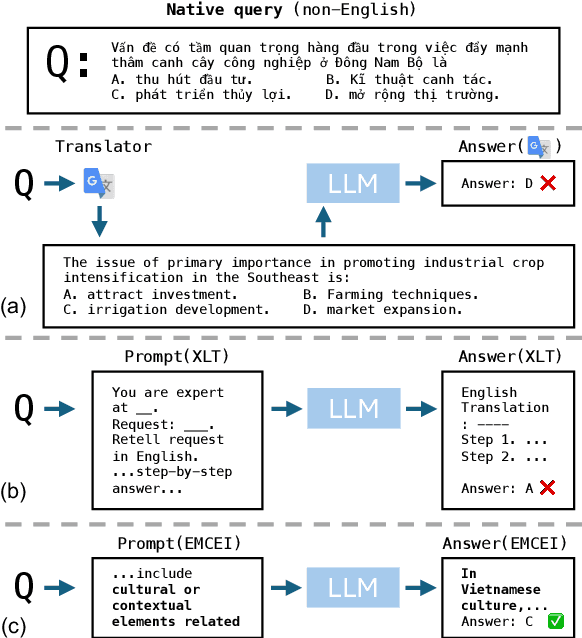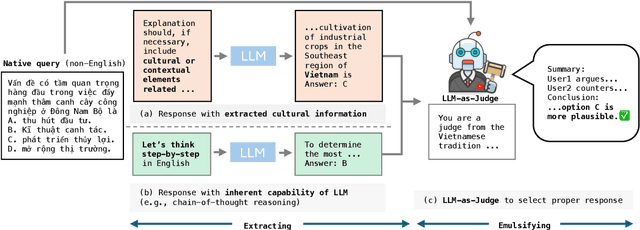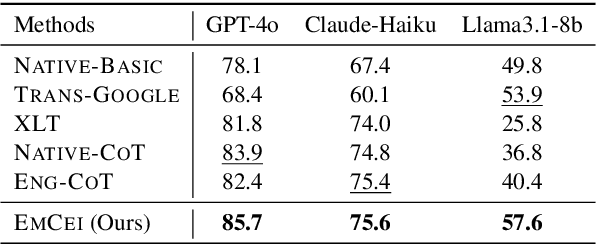Hamin Koo
Extracting and Emulsifying Cultural Explanation to Improve Multilingual Capability of LLMs
Mar 07, 2025



Abstract:Large Language Models (LLMs) have achieved remarkable success, but their English-centric training data limits performance in non-English languages, highlighting the need for enhancements in their multilingual capabilities. While some work on multilingual prompting methods handles non-English queries by utilizing English translations or restructuring them to more closely align with LLM reasoning patterns, these works often overlook the importance of cultural context, limiting their effectiveness. To address this limitation, we propose EMCEI, a simple yet effective approach that improves LLMs' multilingual capabilities by incorporating cultural context for more accurate and appropriate responses. Specifically, EMCEI follows a two-step process that first extracts relevant cultural context from the LLM's parametric knowledge via prompting. Then, EMCEI employs an LLM-as-Judge mechanism to select the most appropriate response by balancing cultural relevance and reasoning ability. Experiments on diverse multilingual benchmarks show that EMCEI outperforms existing baselines, demonstrating its effectiveness in handling multilingual queries with LLMs.
Optimizing Query Generation for Enhanced Document Retrieval in RAG
Jul 17, 2024



Abstract:Large Language Models (LLMs) excel in various language tasks but they often generate incorrect information, a phenomenon known as "hallucinations". Retrieval-Augmented Generation (RAG) aims to mitigate this by using document retrieval for accurate responses. However, RAG still faces hallucinations due to vague queries. This study aims to improve RAG by optimizing query generation with a query-document alignment score, refining queries using LLMs for better precision and efficiency of document retrieval. Experiments have shown that our approach improves document retrieval, resulting in an average accuracy gain of 1.6%.
 Add to Chrome
Add to Chrome Add to Firefox
Add to Firefox Add to Edge
Add to Edge